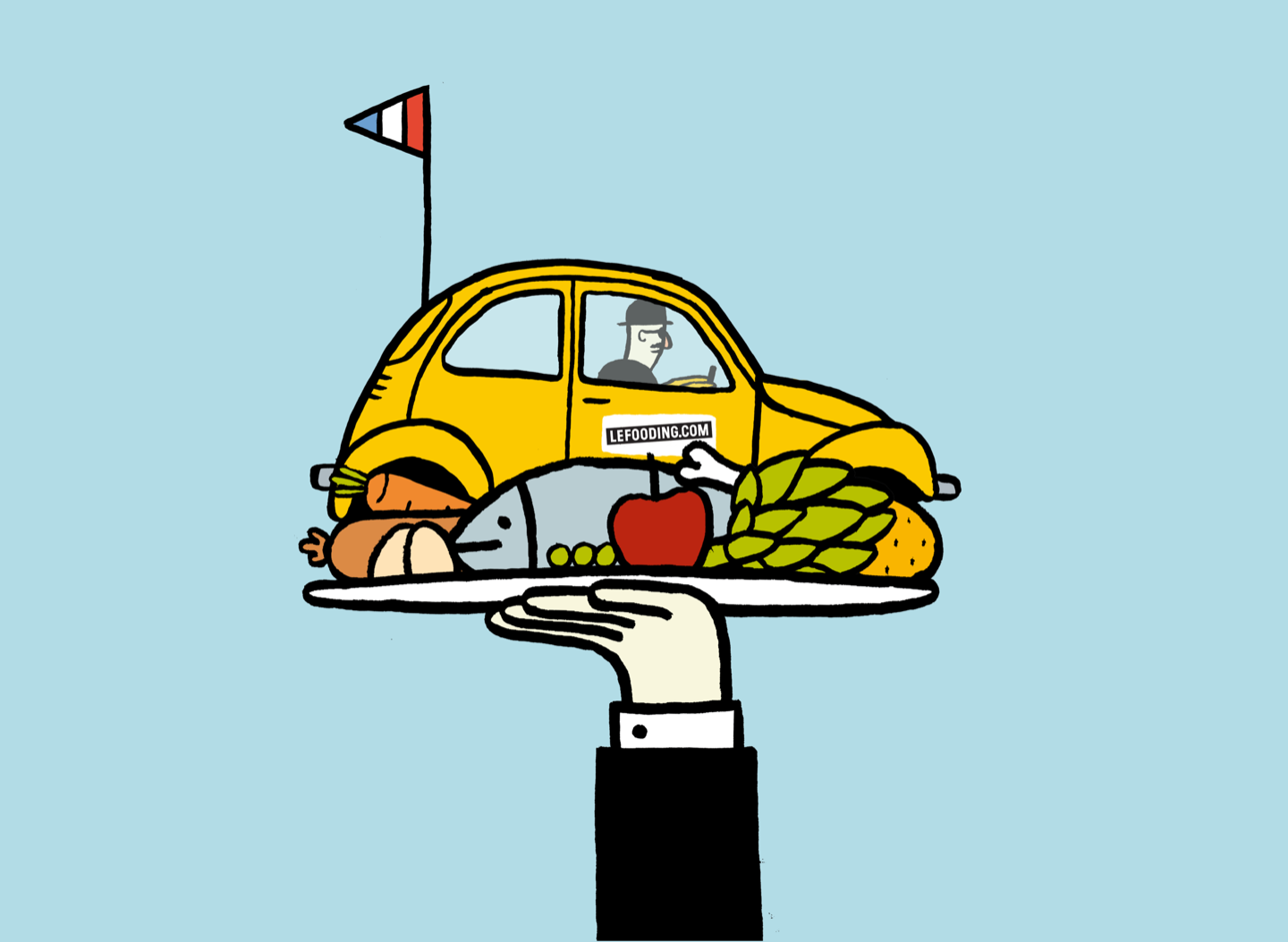Dear Frenchbasher,
Spending most of my days tinkering around in the “food industry,” I admit that I reserve very little of my time for gastronomic articles. For example, when I have a little free time to myself, I’d rather feast my ears at Coachella than check out one of these international food festivals while trying to convince the potbellies of the world that their ills are virtues, their favorite chefs are great artists and their dishes are sex toys. If I created Le Fooding, it was precisely because after having closely observed this little world during my many years as a gastronomic critic, I quickly understood that I couldn’t put up with the international community of “food geeks” for very long, their obsessive discussions, their monopoly on good taste…
In short, since that universe doesn’t interest me, it was a solid two weeks late that I discovered your scathing article, “Can Anyone Save French Food?” and not because, as a proper Frenchman, I happen to be lazy, lethargic, disconnected, behind the times…
The other night, while dining with Laeticia and Johnny in a Los Angeles restaurant (Laeticia, who, even in L.A., still cooks pasta à la poutargue française, I swear!), Laeticia had me read your article….
And here, I must confess, even if you were careful to mention Le Fooding Guide and to lubricate your pen with kindness before spitting fire, I would have really liked to be in the 16th century, in order to grab the trout off of my plate and give you a few slaps before fixing a rendezvous in the gardens of Bel Air or Central Park, for a steak knife dual.
But who are you, Michael Steinberger, to write such things?! Either you believe what you write, and in that case, you must enjoy kicking us while we’re down, or you don’t believe what you write, and you’re nothing more than a small-time ideologue. (To reassure you, I think exactly the same thing of French editorialists who mock the decline of the American empire; the world is divided, we can agree upon that, but less by nation and more by systems of thought…And you, dear Michael, you seem to enter directly into this binary system that also counts amongst its ranks, this will surprise you, a few of the French—enjoy!—but not only them….)
What you need to know now is that Le Fooding Guide was the first publication to praise this wave of foreign chefs who came to open restaurants and run kitchens in France. I can even swear to you that in 2009 it wasn’t an easy task to convince the big French media powerhouses (Le Monde, Le Figaro…and their respective gastronomic writers) to pay attention to the changes taking place and how truly formidable they were. All of these excellent restaurants that you have written about, with the exception perhaps of Verjus, were revealed to the world, supported and praised by lefooding.com. No one will tell you otherwise. And we should continue to rejoice for that!
And does that mean that French cuisine is dying, in the terminal stages of life? No, of course not! Because what is French cuisine in the 21st century if not cuisine that’s “made in France?” Do you dare claim, you, the American, that in 2014, the race of a cuisine is defined by the passport of the chef who prepared it? If you had written your article in the 1980s, you might have been right, but today Michael, you can’t be serious! Are David Chang’s buns Korean or New Yorker? Is Yotam Ottolenghi Israeli, Italian, German or a Londoner? Daniel Rose, is he Illinoisan or Parisian?
Did you know, since you seem to attach so much importance to government issued IDs and races, that the “bistronomy” movement which has been developing in the world’s biggest cities for years—New York comes to mind (Estela, Contra…)—was set into motion by a chef who only speaks French? “Papieren bitte!” ” “Yves, Camdeborde, Le Comptoir du Relais, Mein herr!” That this new bistro cuisine was reinitialized, modernized by another chef born in France? “Jawohl! Inaki Aizpitarte, Le Chateaubriand, Herr Steinberger!” And if you had really done your job as an interviewer, all of these foreign chefs would have told you that without Inaki, without Yves, they would never have been able to embark on such adventures. Inaki and Yves were, amongst a handful of scouts of French nationality, the first chefs to demonstrate economically that this form of neo-bistro, stripped of all the excess, could be successful, even though it existed nowhere else in the world… And within this series of chefs, what do you have to say about Bertrand Grébaut (Septime, Clamato), David Toutain (from his eponymous restaurant), Adeline Grattard (Yamtcha), Sven Chartier (Saturne), who are considered, amongst those of whom you speak, to be true heavyweights? Of course, I’m only talking about Paris, since when you speak of French cuisine, you only mention Paris!
And what’s more, dear Michael, where you’ve made a misstep is in citing Gregory Marchand, the talented chef of Frenchie, whose nationality you guarantee as 100% French, but who learned more in London or in NY than in France… Did you not realize, au contraire, that Gregory Marchand was working within the grand tradition of French culinary imperialism? That he came to your country to steal your ideas and then digest them à la française! Zut! You hadn’t thought of that? You’re suddenly looking very pale…Could it be that your food is coming back up? Your hot dog that paired so well with the glass of Bordeaux suddenly doesn’t feel so hot? Hmm, I’d rather distance myself; you’re looking queasy…And dine with Americans who aren’t quite as lazy.
Alexandre Cammas

